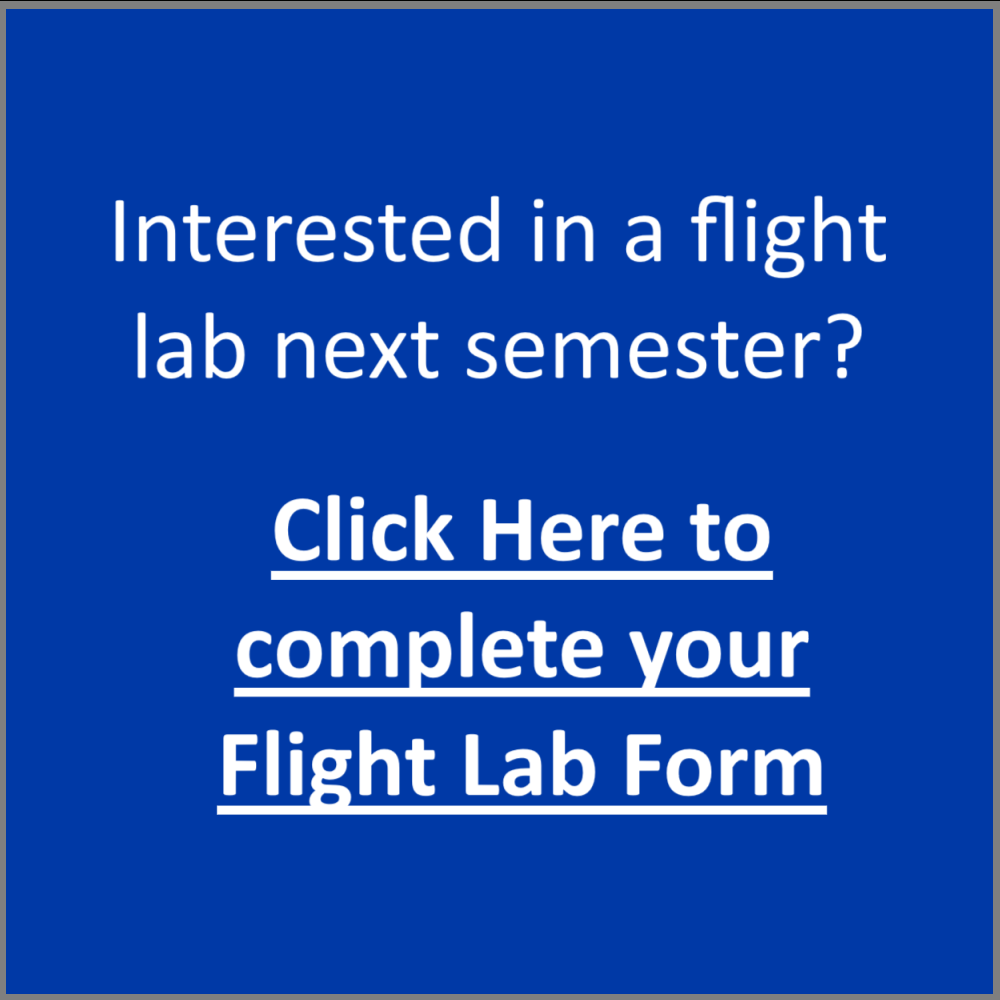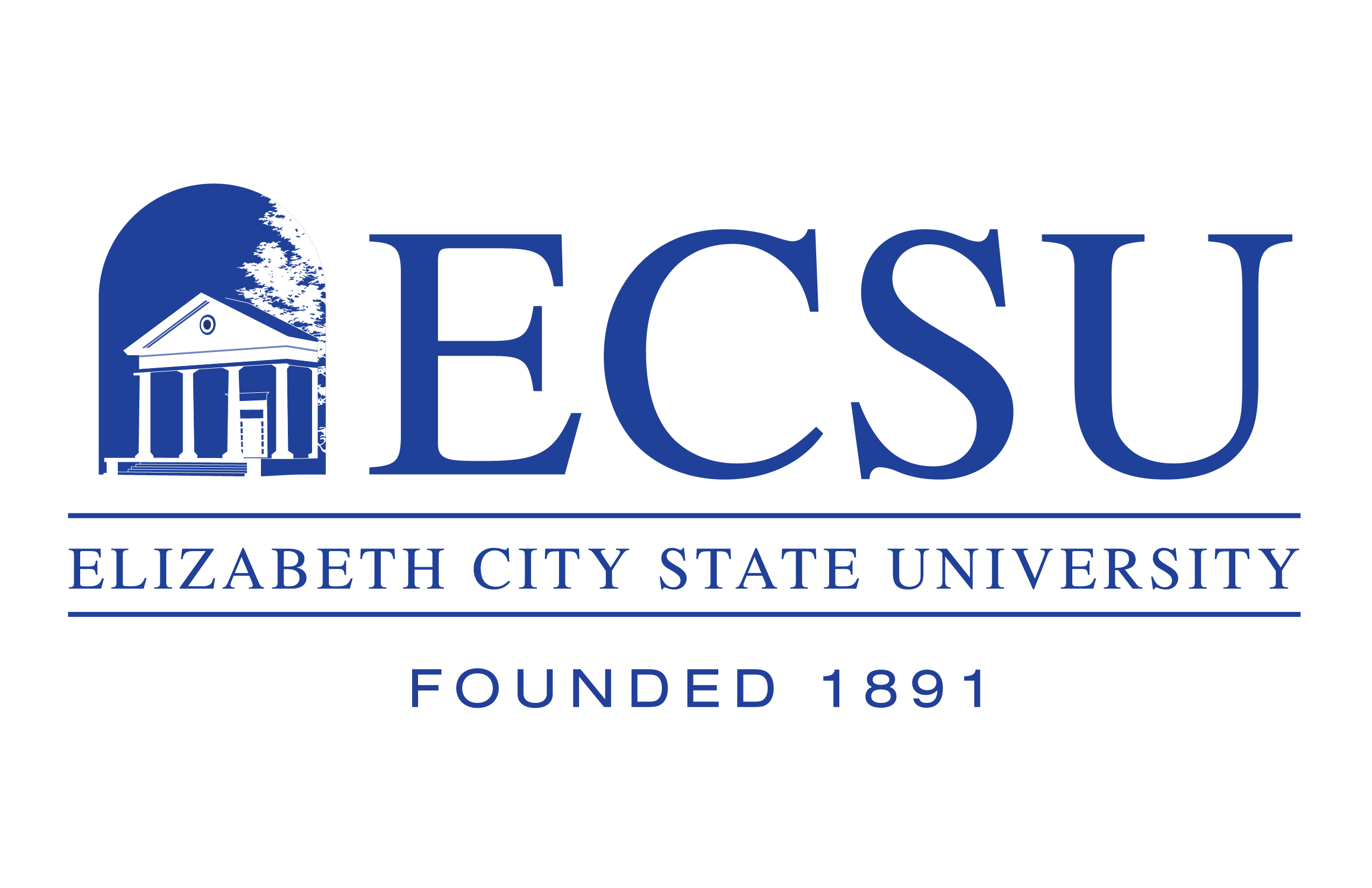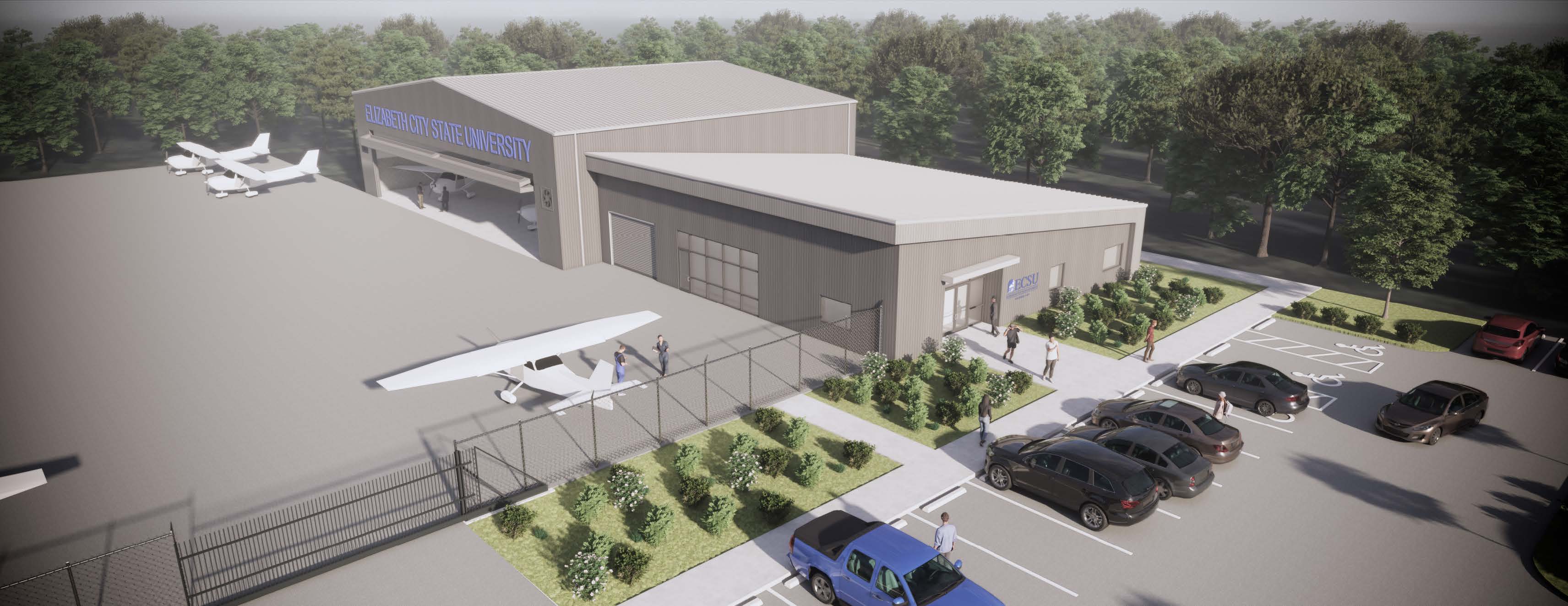Find Your Passion with an Aviation Science Degree | ECSU
PROGRAM OVERVIEW
|
Soar to new heights in your career at the only four-year collegiate aviation education program in North Carolina. ECSU offers two aviation majors - Aviation Sciences and Unmanned Aircraft Systems - and a wide array of concentration areas. You’ll graduate with the skills you need to start the career you want in aviation. The airline industry supports more than 65 million jobs worldwide, making it one of the world’s largest employment sectors. Our aviation programs can help you find your calling in this diverse field. |
 |



With an airport just 1.5 miles away from the heart of our campus, you’ll have easy access to hands-on experience at working aviation facilities.
With a dedication academic and lab space opening in Fall 2027, the aviation programs at ECSU are poised to transform aviation education and training throughout North Carolina.
|
Click Image for Live Feed |
Beginning Fall 2026, students will have even more flight training opportunities with the addition of brand-new facilities at the Currituck Airport just 16 miles from campus. This additional location will provide flexibility to our main campus students by providing a non-towered environment for flight training in addition to the existing towered operations at the Elizabeth City Regional Airport.
Click Image for Live Feed and Timelapse
Veterans will be able to use their benefits to complete their degree. For more details on how your benefits may be used at each of our programs, contact the ECSU’s Military and Veteran Affairs.
Note: Aviation Management is very popular with transfer and non-traditional students so the graduation rate does not accurately reflect the popularity of the program.
Click for more information on a degree in Unmanned Aircraft Systems.
Partners
Learn about our aviation partners and they open up new pathways for our students.
Graduate Employment
ECSU Aviation Management graduates find employment in various fields of the aviation industry. The solid aviation foundation found throughout the curriculum makes these graduates flexible and highly sought after. Several have entered governmental and civil services as well as most branches of U.S. Department of Defense service and since 2015 three (3) have opted for flight billets. Other ECSU aviation management graduates are customer service representatives for major airlines, both land and airside airport/line operations specialists for small, mid-size, and large airports. Graduates also have found positions as aviation technical publication writers, aviation logistics coordinators, as well as dispatching and scheduling and even as the manager of a small local airport.
Flight Education students find employment in an array of companies and organization. Most go directly to one of our many partner airlines, while others begin their careers in the military or corporate aviation. Regardless of the path students choose, the flight education concentration has limitless potential.
Professional Aeronautics/ATC students develop many marketable skills and are well positioned for various operational roles within the industry. Air Traffic Control is a highly competitive and highly rewarding career path serving a vital role in our aviation infrastructure.
- Aviation Management and Professional Aeronautics students can complete all their coursework either in an on-campus program or an online program.
- Students interested in a Flight Education degree can complete an on-campus program or an online program with flight training conducted through a Flight Training Affiliate (FTA).
- Students with their FAA ratings interested in a Flight Education degree can receive up to 34 credit hours towards the completion of the online program depending on the certificates and ratings held. This option is designed for working flight instructors and regional airline pilots seeking to complete their undergraduate degree.
Organization of Black Aerospace Professionals (OBAP): OBAP Inspires excellence and provides opportunities in aerospace by supporting, transforming, educating, and mentoring our members and communities
Alpha Eta Rho (AHP): is a professional collegiate aviation fraternity founded in 1929 to bring together students that have a common interest in the field of Aviation. Membership is open to all collegiate men and women who have a strong interest in any career within the aviation and aerospace industry. AHP is the oldest aviation organization on college campuses today!
Professional Asian Pilots Association (PAPA): PAPA is dedicated to bringing awareness and support to all members of the Asian community in all fields of aviation. We hope to inspire current and prospective professionals towards a fulfilling career in aviation.
Latino Professionals in Aerospace (LPA): LPA supports students pursuing aviation and aerospace careers while celebrating Latino heritage and culture. The club aims to provide inspiration, mentorship, networking, and professional development through events, guest speakers, and community outreach. LPA helps ECSU Aviation students build confidence, leadership skills, and strong career pathways for the future.
Women in Aviation International (WAI): Women in Aviation International (WAI) is a nonprofit organization dedicated to the encouragement and advancement of women in all aviation and aerospace career fields and interests. Our diverse membership includes astronauts, pilots, maintenance technicians, engineers, air traffic controllers, business owners, educators, journalists, flight attendants, high school and university students, air show performers, airport managers, and many others. We are dedicated to: investing in our current and future workforce, developing an inclusive and sustainable aviation and aerospace industry, and inspiring girls to pursue careers in aviation and aerospace.
National Intercollegiate Flying Association (NIFA): The National Intercollegiate Flying Association was formed for the purposes of developing and advancing aviation education; to promote, encourage and foster safety in aviation; to promote and foster communications and cooperation between aviation students, educators, educational institutions and the aviation industry; and to provide an arena for collegiate aviation competition.
The Southeast Chapter of the American Association of Airport Executives (SEC-AAAE): With more than 600 members, the Southeast Chapter is the largest chapter of the American Association of Airport Executives. This chapter represents twelve states as well as the Virgin Islands and the District of Columbia.The association is guided by a nine-member Board of Directors and an Executive Secretary.
University Aviation Association (UAA): The University Aviation Association (UAA) is the voice of collegiate aviation to our members, the industry, government and the general public. Through the collective expertise of our members, UAA plays a pivotal role in the advancement of degree-granting aviation programs that represent all segments of aviation. Today, UAA is comprised of over 1200 members from more than 220 colleges and universities in the U.S., Canada, Australia, Europe, and Asia. The organization and its members are poised to meet the ever-changing needs of the aviation industry and address the challenges of the 21st century.
National Business Aviation Association (NBAA): Founded in 1947 and based in Washington, DC, the National Business Aviation Association (NBAA) is the leading organization for companies that rely on general aviation aircraft to help make their businesses more efficient, productive and successful. The association represents more than 11,000 companies and professionals, and provides more than 100 products and services to the business aviation community, including the NBAA Business Aviation Convention & Exhibition (NBAA-BACE), the world’s largest civil aviation trade show.
Aircraft Owners and Pilots Association (AOPA): AOPA is the beacon for those who cherish the freedom to fly. It demonstrates what is possible when a determined organization listens to its members, collaborates with its colleagues, finds solutions with its partners in government, and focuses its resources—all to secure the future of General Aviation. AOPA’s success is proof that the public good can be served while individual freedoms are preserved.
Various clubs and organizations offer aviation-specific scholarships. Each has their own deadlines and requirements. Students are encouraged to aggressively apply for scholarships. Details on the scholarship process are outlined in https://www.ultimatescholarshipbook.com/. Some scholarship opportunities include:
The ATP certificate is the highest level of pilot certification in the United States. It is required for pilots operating as captains or first officers in Part 121 air carrier operations (airlines) and some other commercial aviation roles. An ATP requires a minimum of 1,500 flight hours and completion of various training and knowledge requirements.
A restricted ATP (R-ATP) is a modification to the standard ATP requirements and allows pilots to obtain the ATP certificate with fewer flight hours than the usual 1,500 hours, with certain limitations. This allows graduates of approved programs (including ECSU) to be eligible for employment with airlines faster.
The R-ATP minimum hour requirements are as follows:
- 1,000 hours for graduates of ECSU with 60 hours (or more) of approved aviation coursework.
- 1,250 hours for graduates of ECSU with 30 hours (or more) of approved aviation coursework.
The R-ATP allows pilots to become first officers in Part 121 air carrier operations with the reduced flight hour requirement.
Elizabeth City State University (ECSU) has formed a groundbreaking partnership with Embry-Riddle Aeronautical University (ERAU) to offer an accelerated 4+1 master’s program in aviation, enabling ECSU students to earn a Bachelor of Science in Aviation Science and a Master of Science in Aviation in just five years. Under the agreement, ECSU students may begin taking graduate-level courses during their senior year, with credits counting toward both their undergraduate and graduate degrees. Participants can complete their master’s program one year after earning their bachelor’s degree, saving time and tuition costs while enhancing career readiness.
We're here to help
We’re here to support you throughout your time at ECSU–starting now. For more info on the admissions process, reach out to us directly.


